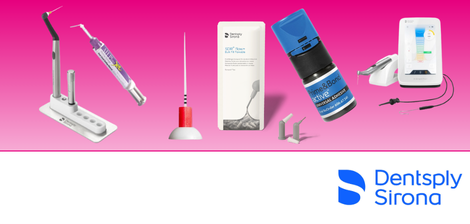The Pros and Cons of experience V E-learning
Time for a busy dental professional is a precious (and often rare) commodity, so taking time out of your hectic schedule needs to be spent wisely, especially when you’re carrying out professional and personal development training.
But what’s best for you, face-to-face training or e-learning? We review both and reveal that the experience of one-to-one wins over e-learning hands down.
Experience V E-convenience
On the one hand e-learning may seem, at first, to be the more convenient option for busy dental professionals. It’s remote and can usually fit around practice schedules.
But, are you getting true value from it and developing the way you want to?
On the other hand, no machine can compare with one-to-one bespoke training delivered by an experienced (and human) trainer. Face-to-face training may require a commitment of time out of practice, but it’s the best route to focused learning.
Don’t get dogged by distractions
What’s the main thing that gets in the way of training? The answer is quite simply, daily practice life. So, while it may seem more convenient to go for e-learning, the chances are you’ll not complete the whole training programme without being interrupted by those daily distractions that come hand-in-hand with being part of a busy practice.
Phones ring, emails come in, emergencies happen that you need to deal with, you’re short-staffed that day…the list of distractions could go on. And that environment isn’t conducive to effective learning.
In comparison, face-to-face training, even when carried out in practice, is designed to take you away from distractions and enable you to focus on learning.
Having a trainer there to guide you through a programme provides structure and a pace that immerses you in the task at hand – and you’re not at risk of being distracted.
Nothing beats a (real) conversation
Sitting in front of a computer or tablet may be a way to gather information, but it’s yet to beat the benefits of having a conversation with a human.
Face-to-face training allows participants to ask questions, to challenge and clarify.
And nothing beats a conversation with an experienced trainer in a real learning environment, certainly not an e-training chat bot.
With a real trainer you don’t have the frustration of issues with connectivity, wifi, Skype, passwords and access instructions.
Understanding the hard to understand
Some training topics can be hard to comprehend, even mindboggling. Take for example CQC inspection requirements, or a change in regulation. Often, all you need is to talk about it in a language you understand and discuss how practically it impacts you. That’s impossible with e-learning.
Only when you talk through a difficult issue or challenge and get the opportunity to put it into practice with expert guidance and advice can you genuinely understand how to deal with it in real life.
Hands-on V virtual
Some e-learning programmes provide opportunities to practice a new skill or learning via simulation exercises. Some of these are very engaging, but the interaction between trainer and student can’t be duplicated by a machine (yet).
Going solo or learn as a team
When you bring a group of people together for face-to-face training you create an environment where experiences and best practice can be shared.
You also bring an element of socialising and networking into the training, which adds value to those taking part.
The F word
Training doesn’t have to be hard work – it can be fun.
The best trainers are those who know how to engage and create an environment that’s enjoyable and allows deeper learning.
Bespoke not mass-market
If you want off the shelf training, e-learning is fine – it’ll do the job (to a degree). But if you need bespoke training that’s designed for you and your practice then face-to-face is the only viable option in getting the support you need.
The team also offers more specialised courses and hosts seminars across the UK on topics including dental radiography and radiation protection, safeguarding and clinical record keeping. Check thisnas currently not running courses.



